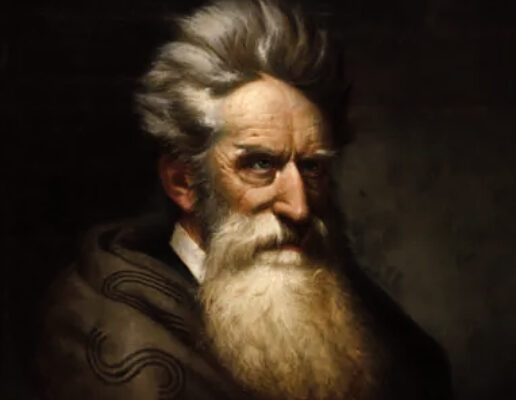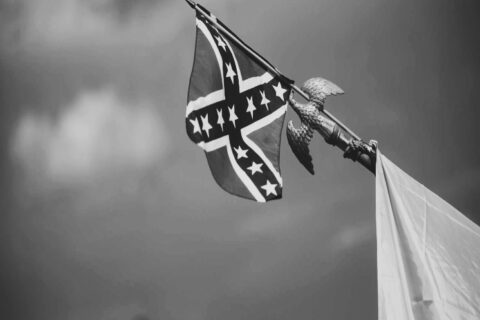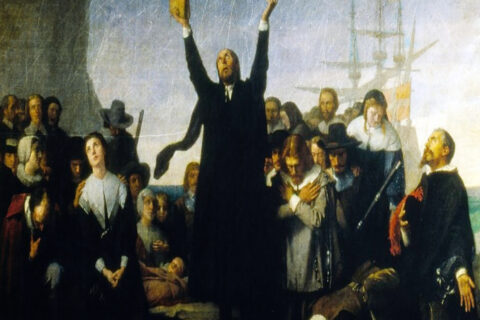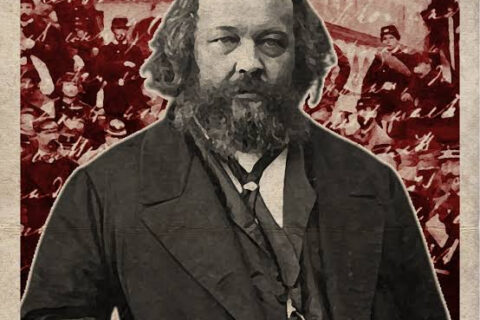Identity Dixie did something different [than other dissident groups]; the members of ID really strongly believe in the idea that the Overton window needed to be shifted back to a, not really Left or Right, but a pro-Southern trajectory…that we were going to go out there and fight to ensure that Southerners understand that they are worthy of their history…of making sure that we constantly remind Southerners that they are worth fighting for, that they have a culture worth fighting for…and that is exactly what Identity Dixie has done for the last seven years…
Padraig Martin, June 22, 2022, the Not Sorry Show
I have been meaning to write something about this topic – the topic named in the title I chose for this article – for publication here at our little oasis for a while now. And, accordingly, the above-cited commentary in particular and its able author, along with several recent pieces of written content and their able authors (see e.g., here, here and here) combined to provide the inspiration for doing so that had previously evaded me. Assuming most of our readers have not as yet done so, I strongly urge you to listen to the first hour of the above-linked podcast, wherein our own Mr. Martin ably discusses Southern Nationalism as such, as well as Identity Dixie’s role in it and where we go from here.
That said, and in accordance with Mr. Martins commentary quoted in my epigraph, allow me to say, before diving into the subject matter itself, that if ever you scratch very deeply beneath the surface of this subject at all, you will undoubtedly uncover, as have I, numerous and sundry first-hand testimonials witnessing to the very thing in question having been taught the impressionable ‘woolly-headed’ blacks early during the “Reconstruction” era by none other than Yankee Contract Preachers mentioned in the post title.
What, you might be asking, is a “Contract Preacher?” Well, the short answer is that he is (or was) a fire-breathing radical abolitionist windbag, commissioned by the Union War Dept., to abandon his flock (assuming he had a flock to abandon – not exactly a safe assumption to make, but nonetheless) to preach the “fiery gospel” according to the Lincoln Administration and its sycophants to unregenerate Southern sinners and to their former slaves alike; he was one who, according to Virginia Lomax and numerous others, was “handsomely paid” for his services and his trouble. Other accounts also inform us of the fact that this was a much coveted and highly sought after gubment job in the North and at that infamous time in American history.
Making tax-free money in the Lord’s service!
Let us not fail to note the distinction herein between the gospel according to Abe Lincoln, and the gospel according to the post-assassination Lincoln historians and acolytes, for it was upon the foundation of Mr. Lincoln’s martyred memory that the superstructure of this latter “gospel” was first erected, as I shall strive to demonstrate below. A similar “gospel” had earlier been crafted by the heretical Yankee “priesthood” following the hanging of the murderous traitor, John Brown; but of course, that man’s life and death lacked the necessary emancipation ingredient to give it real and lasting force and effect. This missing and vital component in the sainted John Brown’s case, Mr. Lincoln would afterward provide in his vaunted and much beloved “Emancipation Proclamation,” although I am fairly certain he himself would not have approved of being likened unto The Great Law-giver and deliverer of the oppressed Israelites of Old Testament Egyptian bondage.
In any case, if and when you take the time to read two short chapters – chapters 16-17 – of Virginia Lomax’s book above-mentioned, you will be rewarded for your effort with a full measure of what one Northern “man of the cloth’s” version of this heretical sermon looked, sounded, and must have felt like to the common (nominally Christian) listener, as well as to his well-catechized, more orthodox brother or sister in Christ.
Momentarily ignoring the obligatory Hosannas to the sainted John Brown (who was eventually demoted from the status of savior of the black race to the lesser status of a type of John Baptist of his time[*], making straight the way of the coming true black savior, Abe Lincoln), the god-man for whom he had been preparing the way; the one whose sandals John Baptist Brown was not worthy to unlatch, is compared to Moses. Indeed, our god-man, Lincoln, was sanctified (almost deified) in verse as having performed a holy mission greater even than that of his ancient predecessor; an holy mission the likes of which, in point of fact, Moses himself would not have been and was not the equal. In other words, in relation to our Abraham Lincoln, the deliverer of the enslaved Hebrews of the Land of Goshen was only an imperfect type, as Joseph was an imperfect type of our perfect Lord and Savior, Jesus Christ.
In lieu of your finding time to sit down and quietly read the sermon for yourselves, dear readers, allow me to provide you a brief overview of the leading parallels our sermon draws between the two men – the two great emancipators – in no particular order:
- Both Moses and Honest Abe Lincoln were born of common, humble stock, noteworthy for nothing particularly remarkable until the favored son’s calling was commissioned and fulfilled in the latter years of his life;
- Both were adopted sons of a great and mighty nation, and elevated to high dignity and high office by the same;
- Both meditated day and night in the wilderness for many years, secretly formulating plans and strategies for the eventual rescue and permanent emancipation of their enslaved brethren;
- Both were selected by Providence to achieve this emancipation at precisely the moment in history when the respective peoples’ afflictions were most severe, cruel and unbearable;
- Neither balked at the prospect of bringing down God’s own terrible wrath on His chosen people’s evil taskmasters, but rather embraced this calling, thanking the Almighty that he had been counted worthy to inflict the long-overdue punishment by the word of his command and his terrible swift sword;
- Both planned and oversaw the theft of many, many millions in gold and silver and precious jewels, and sundry other articles of value, the spoils of which were unequally divided, according to rank, class and station, amongst the invading liberators of the oppressed. Wait!, What?!
- And, finally, both cheerfully answered this calling, and fulfilled it to the letter. Albeit, the far greater of the two – Mr. Abraham Lincoln, as it turns out – had barely inflicted the final and decisive death blow before he himself was called to heavenly paradise and eternal bliss, for, like Enoch of old, he was, yet, suddenly…he was not.
The version of this sermon from whence I have extracted the above parallels may be, as its deliverer informed his listeners at the outset of his delivery, greatly expanded and embellished to paint a more complete and vivid picture of the similarity between the two emancipators, and to, at length, prove by a preponderance of the evidence and beyond a reasonable doubt that the latter of the two – Mr. Lincoln – was indeed the superior to his Hebrew predecessor, and that the black race was, yet again, the more righteous and deserving of their liberation from the far more tyrannical and brutal hand of their evil Southern oppressors.
And, no, I am not making any of this up; I’m not even embellishing for effect. I suppose I should wish I were.
[*] Virtually no one outside our little circles, and probably precious few within them, is aware of this fact today, but before Julia Ward Howe penned the words to what is now known as Battle Hymn of the Republic, Yankees all over the North had developed various versions of its direct predecessor, John Brown’s Body, or, John Brown’s Song. The lyrics of both “Battle Hymn,” and “John Brown’s Body/Song” were put to the same moving tune we’re all intimately familiar with today. Copied and pasted below is one stanza from a popular version of John Brown’s Body (look for a fuller treatment of this version and its author in an upcoming article):
John Brown was John the Baptist of the Christ we are to see,
Christ who of the bondmen shall the Liberator be,
And soon thruout the Sunny South the slaves shall all be free,
For his soul is marching on.
“The Christ we are to see,” and the “Christ who of the bondmen shall the Liberator be” referring, of course, to the “Great Emancipator,” Abe Lincoln. Is any more evidence needed to condemn the heretical Yankee, while simultaneously vindicating our gallant and honorable Christian fathers and mothers of the Southland?
God save Dixie!







Yet it appears that now even the ‘Great god Lincoln’ may have outlived his usefulness to cancel culture. I’ve heard that statues of him (D.C.) and copies of his Gettysburg address (Cornell) are coming down and being removed. Ironic ,yes?
Reminds of that famous line in Washington’s Farewell Speech/Address: “…destroying the very engines which have lifted them to unjust dominion.” Seems like I am hourly given opportunity to quote that line these days. I’m not the only one, nor certainly not the first, to have said many times before that Leftism cannot but get around to destroying itself and its own eventually – after it has destroyed everything else it has touched, of course. Hopefully we’re seeing the beginnings of that eventuality as we speak.
Thanks for the comment, sir
The hatred of southerners is easily seen in the rhetoric and political platitudes of the North well before the War Between the States broke out. Being a northerner myself, but an ardently pro-Southern copperhead with Southern ancestry (maternal side) I have noticed this my entire life; it is sadly woven into the fabric of this region’s history. I believe this is why it was so easy for men of the Revolutionary War-era, such as Jefferson, to predict that conflict between the two peoples was bound to arise if the new republic’s power continued to be further centralised in the North.
Yes, I believe you are correct, sir. Thanks for the comment.
I’ve withdrawn from any theological perspective born north of the Mason-Dixon, save for a few Southerners that were there on mission ( J Gresham Machen).
Nice to point the blunder of which not many people understand, both Yankee and Hebrew.